There’s something utterly heart-melting about the way dogs apologize after making a mistake. One moment they’re caught red-pawed with a chewed-up shoe or a toppled trash can, and the next, they’re pulling out all the stops to win your forgiveness. Dogs don’t speak our language, but they sure know how to make us feel their regret—and, let’s be honest, sometimes it’s impossible not to forgive them. Their quirky, heartfelt apologies are a reminder of the unique and powerful bond we share. If you’ve ever wondered what your pup’s guilty looks and sweet gestures really mean, you’re about to discover 15 touching, funny, and downright adorable ways dogs say “I’m sorry” after they’ve messed up.
1. The Classic Puppy Eyes
Nothing pulls at the heartstrings quite like the legendary “puppy dog eyes.” When dogs feel guilty or want to apologize, they often widen their eyes, tilt their heads, and gaze up at you with an expression so sincere it’s almost human. Scientists believe this look triggers our nurturing instincts, making us more likely to forgive them. It’s as if your pup is saying, “Please don’t be mad, I didn’t mean to!” This gesture is usually paired with a soft, lowered head and sometimes a little whimper. It’s hard to resist forgiving them when they look so adorably remorseful. Even people who claim not to like dogs often admit the power of puppy eyes. It’s the ultimate canine apology and one that melts even the coldest hearts.
2. Drooping Ears and Tucked Tail
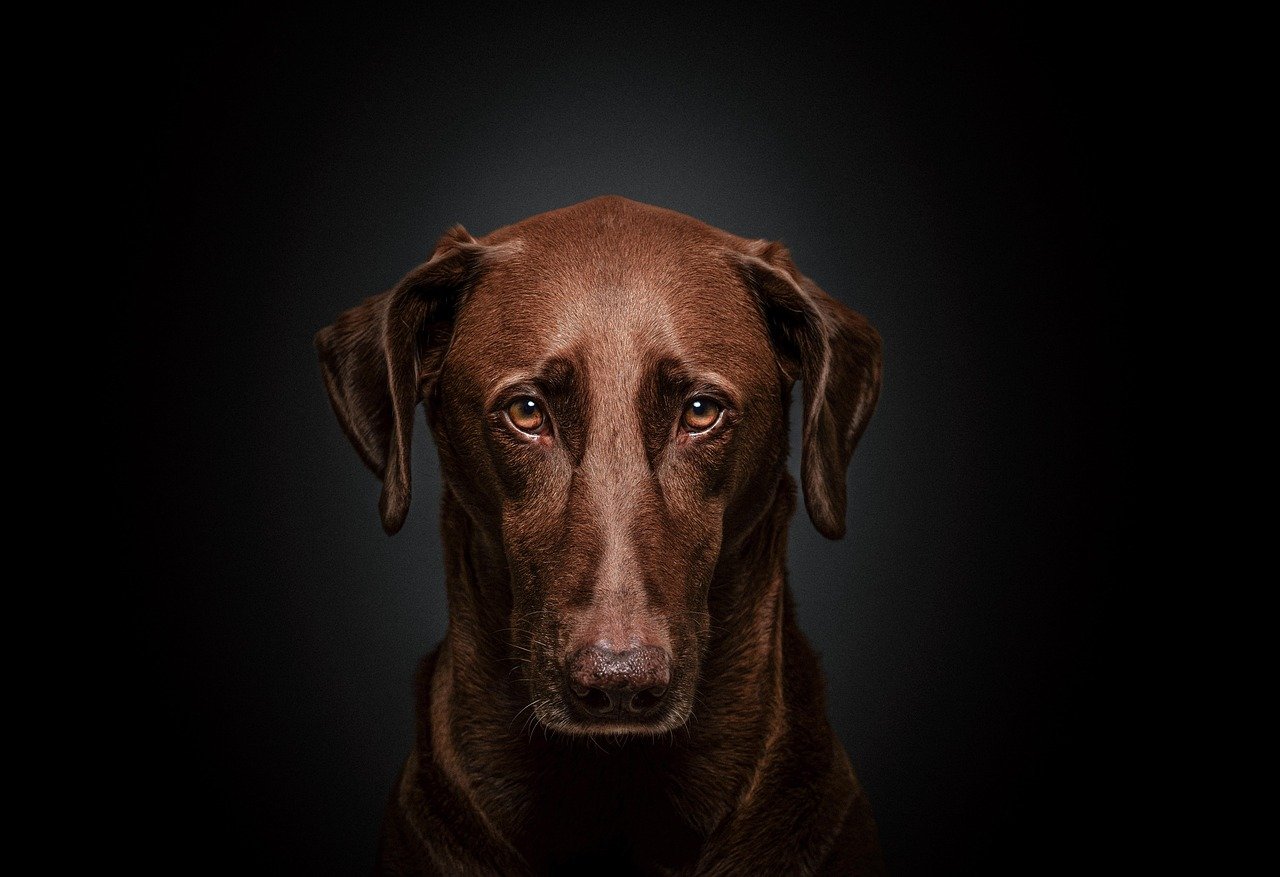
A dog’s body language speaks volumes, especially when they’re feeling sorry. You’ll often notice their ears drooping and their tail tucked tightly between their legs after they’ve done something wrong. This posture is a universal sign of submission and regret in the canine world. It’s their way of shrinking themselves and showing you that they feel bad about what just happened. Sometimes, their whole body seems to sag with guilt. You might catch them sidling up to you, moving slowly and carefully, as if to say, “I know I messed up—please forgive me.” The combination of drooping ears and a tucked tail is an unmistakable apology that tugs at your empathy. It’s a silent plea for a second chance.
3. Licking Your Hand or Face
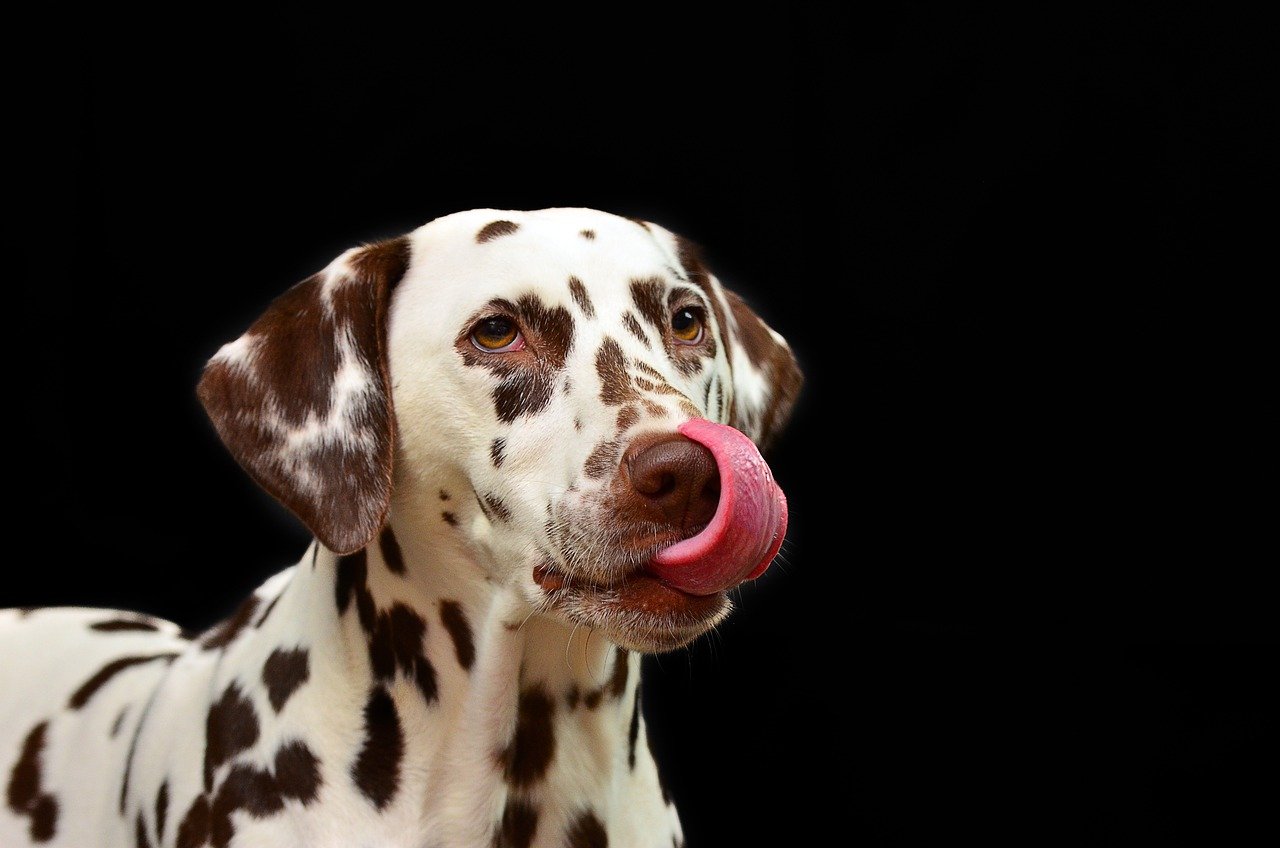
Licking is one of the most instinctive ways dogs communicate affection and submission. After a mishap, your dog might come over and gently lick your hand or even your face. This action is rooted in their puppyhood, when they would lick their mother’s face as a sign of appeasement and love. In your dog’s mind, this is a sincere way to ask for forgiveness and restore peace. It’s also their way of saying, “I want to make things right.” Many dog owners find it difficult to stay upset when their furry friend offers these sweet, slobbery apologies. The warmth and sincerity behind each lick make it clear just how much your dog values your bond.
4. Rolling Onto Their Back
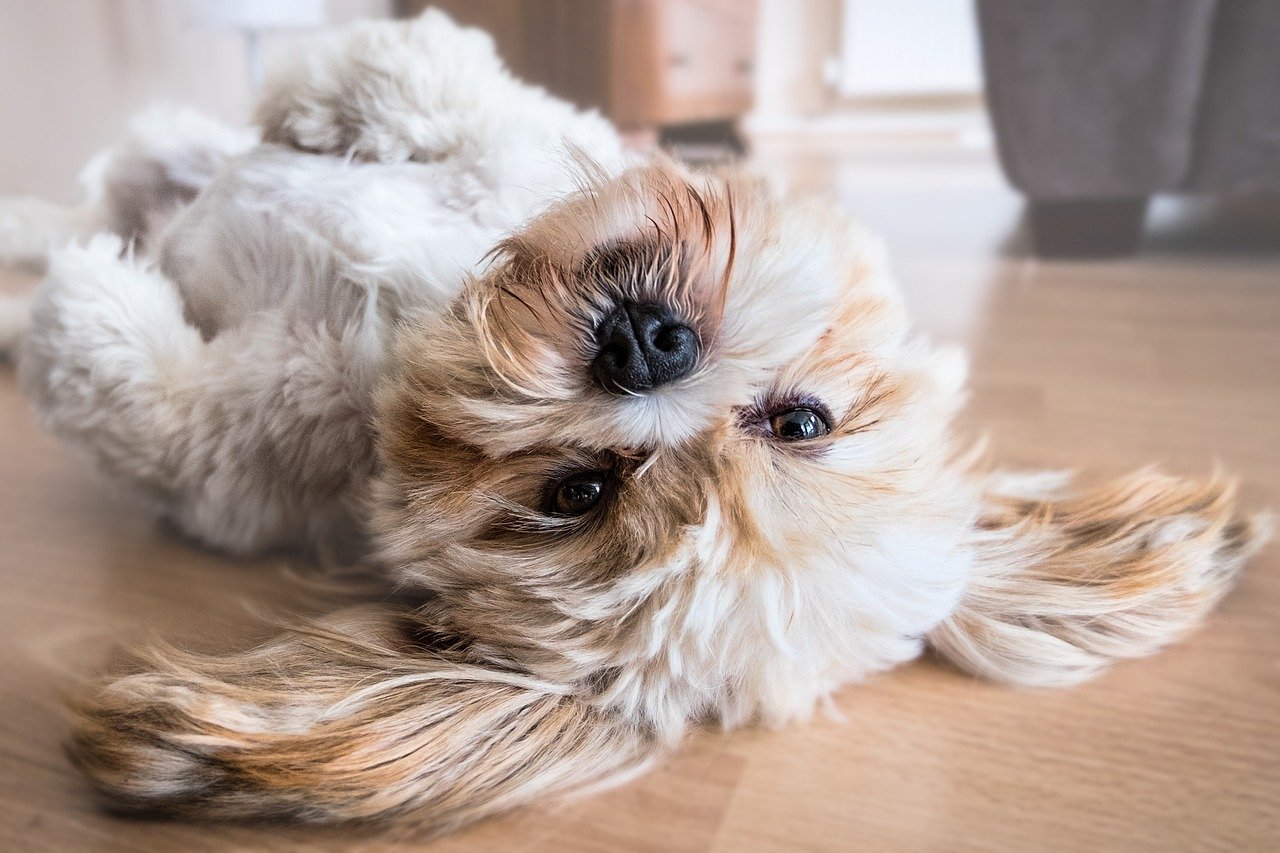
When a dog rolls onto their back and exposes their belly, it’s a big deal. This is one of the most vulnerable positions a dog can take, and it’s an unmistakable sign of submission and trust. If your dog flops over after being caught in the act, they’re offering you a peace treaty. It’s their way of saying, “I trust you, and I’m sorry for what I did.” Sometimes, they’ll even wiggle a little or paw at the air, hoping to lighten the mood. This gesture is both an apology and an invitation for a belly rub, which can help ease any lingering tension. Few people can resist the charm of a dog rolling over in apology.
5. Avoiding Eye Contact
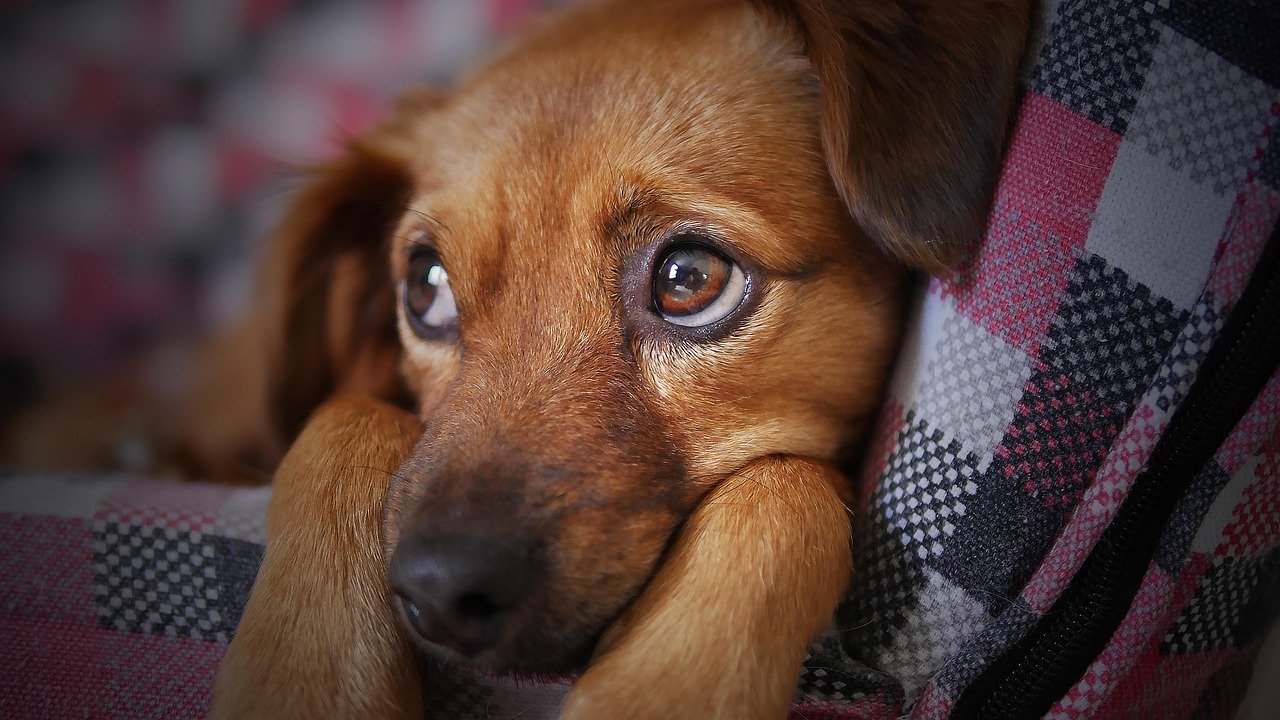
Dogs are experts at reading human emotions, and they know when you’re upset. After making a mistake, many dogs will avoid looking you in the eye. This isn’t about being sneaky—it’s actually a sign of respect and submission. In the canine world, direct eye contact can be seen as a challenge, so looking away is their way of showing deference. If your dog suddenly finds the floor or the wall very interesting after being scolded, they’re likely feeling sorry and hoping to avoid further conflict. This subtle gesture is easy to miss, but it’s a heartfelt canine apology. It shows they understand your disappointment and want to make amends.
6. Slow, Submissive Approach
Instead of their usual bouncy greeting, a guilty dog might creep toward you with slow, tentative steps. Their head is low, their body language is soft, and their tail may wag just a little, almost nervously. This approach is the canine equivalent of tiptoeing, as if they’re saying, “I’m sorry—can we be friends again?” It’s a cautious, respectful way of seeking your forgiveness. Sometimes, they’ll pause and wait for a sign that it’s safe to come closer. This slow approach shows they care deeply about your approval and want to rebuild trust. It’s a gentle, heartfelt apology that’s impossible to ignore.
7. Bringing a Favorite Toy
Some dogs are natural peacemakers, and when they sense they’ve upset you, they’ll bring you one of their prized possessions. Whether it’s a well-loved squeaky toy or their favorite ball, this is your dog’s way of trying to make things right. In the wild, sharing food or gifts is a way to restore harmony in the pack. By offering you their toy, your dog is saying, “I want to make you happy again.” It’s an act of generosity and love, and it shows just how much your forgiveness means to them. This gesture is both endearing and effective—it’s hard to stay mad when your dog is offering you their treasure.
8. Snuggling Up Close
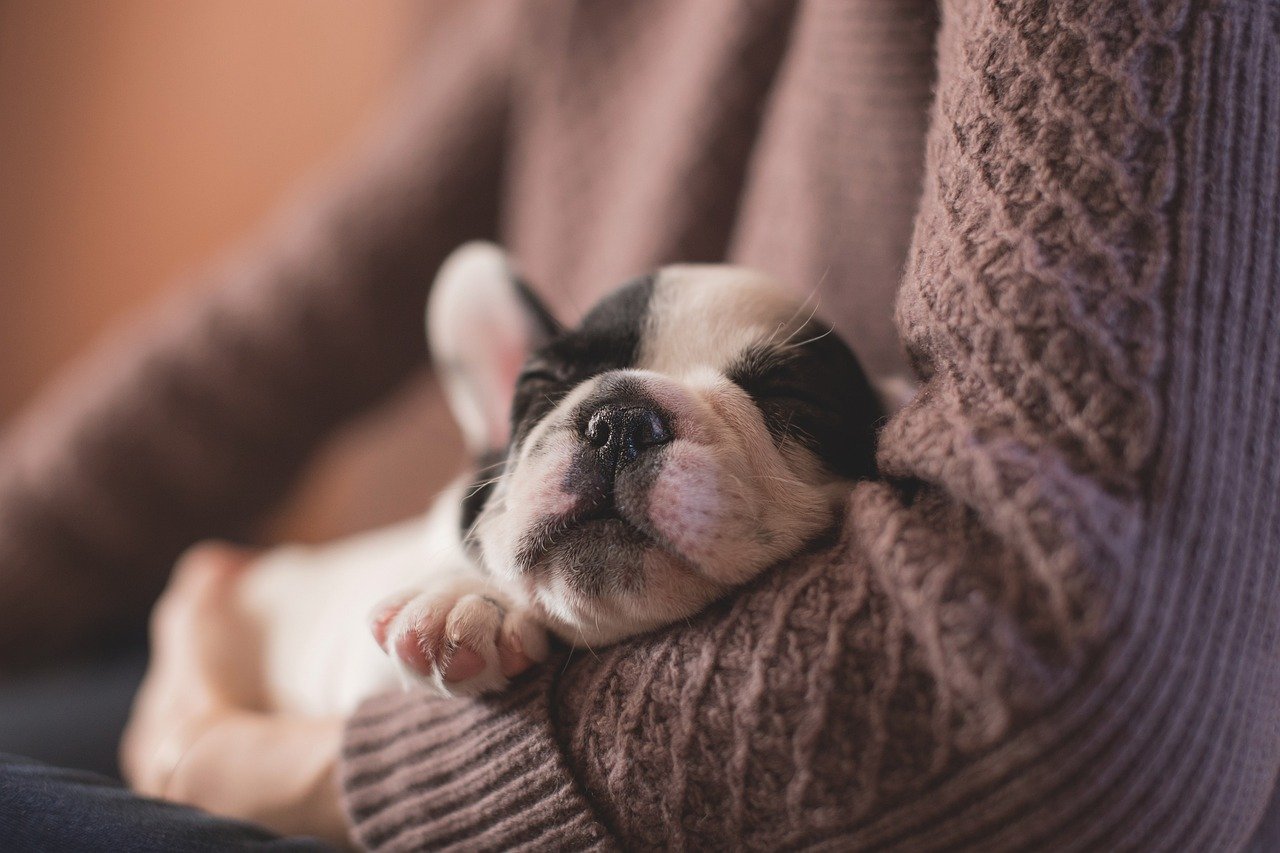
After a slip-up, many dogs will seek physical closeness as a way to apologize. They might nuzzle against your side, rest their head on your lap, or curl up at your feet. This need for connection is their way of saying, “I’m sorry, let’s be close again.” Physical touch helps release calming hormones in both humans and dogs, which can ease any lingering tension. It’s a silent but powerful apology that speaks to the deep bond you share. When your dog snuggles up after a mistake, it’s clear they value your relationship above all else. The comfort of their presence is often all it takes to forgive and move forward.
9. Whimpering or Soft Vocalizations
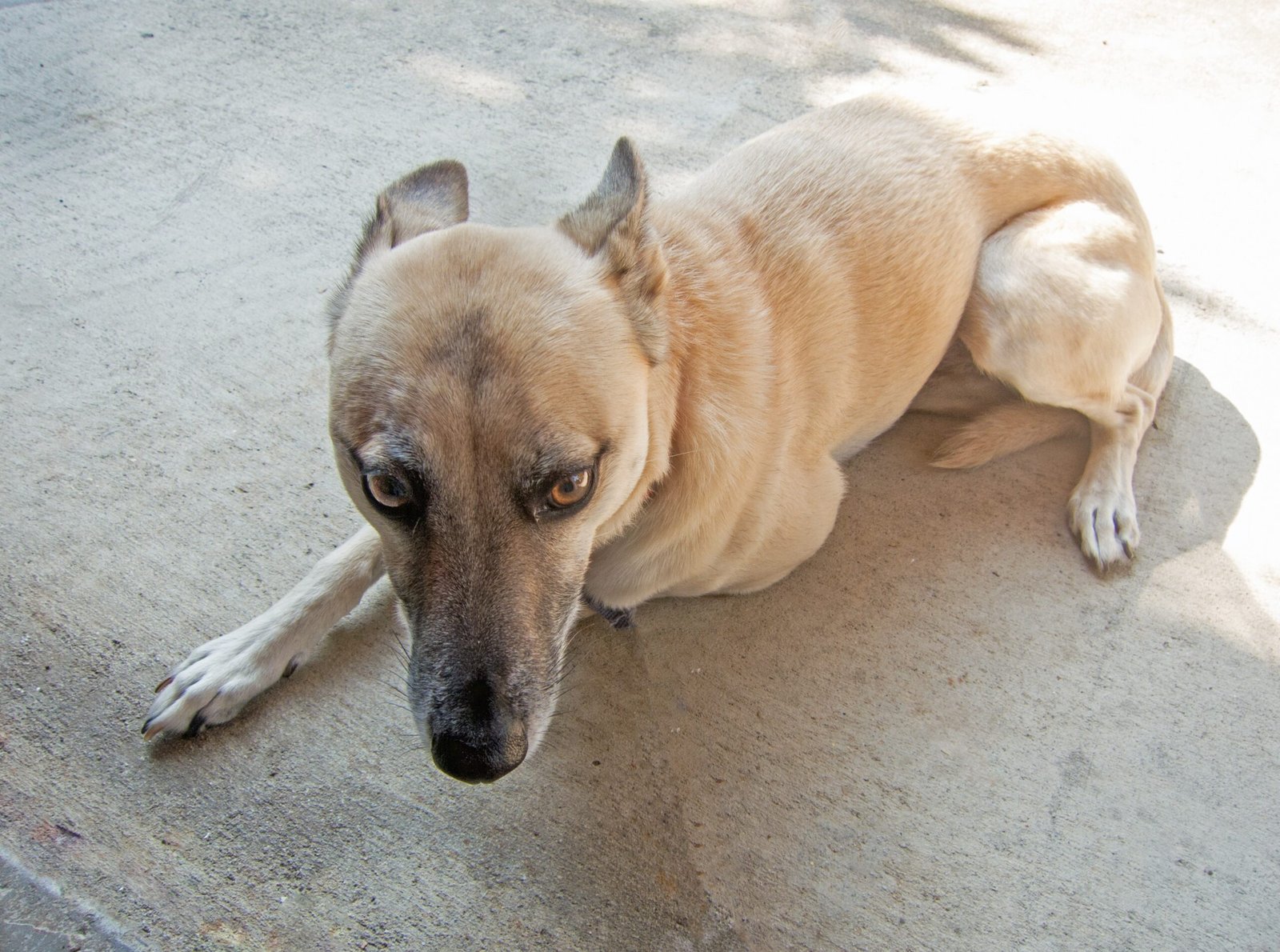
Dogs have a wide range of vocalizations, and when they’re feeling apologetic, you might hear soft whimpers, little sighs, or gentle barks. These sounds are different from their usual barks—they’re softer, quieter, and often accompanied by submissive body language. Your dog is trying to communicate their regret and ask for reassurance. It’s as if they’re saying, “Please don’t be upset with me.” These gentle sounds are a heartfelt plea for forgiveness. Many owners find themselves soothing their dogs in response, reassuring them that all is forgiven. The emotional resonance of these vocal apologies is hard to ignore.
10. Hiding or Retreating
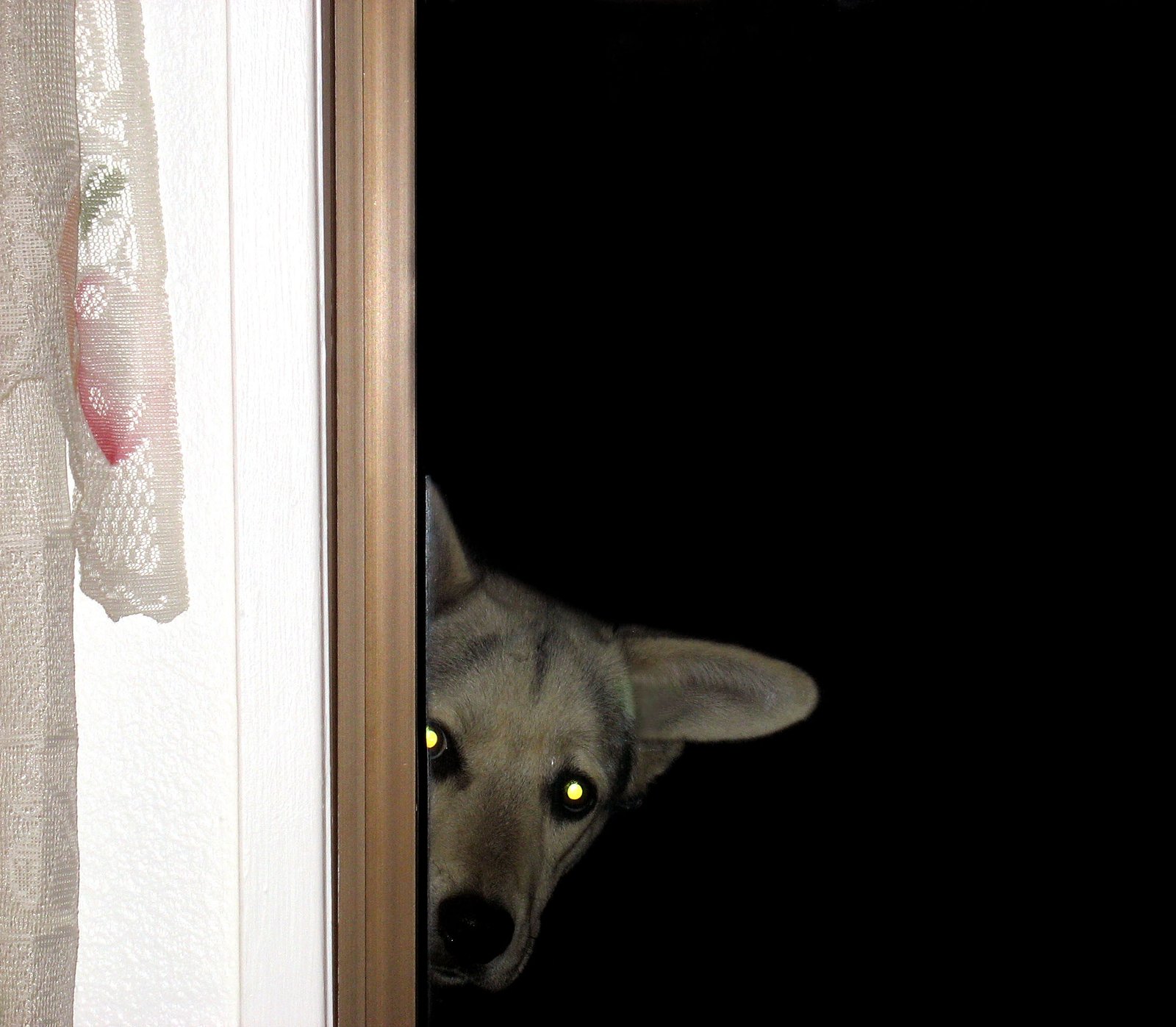
Some dogs react to guilt by seeking out a quiet place to hide. They might slink under the bed, retreat to their crate, or find a cozy corner to wait things out. This behavior is a sign that they recognize they’ve done something wrong and need a little space. While it might seem like they’re avoiding you, they’re actually giving you time to cool off. Once they sense you’re no longer upset, they’ll often re-emerge and seek your attention, ready to make amends. Hiding is a humble, respectful way for dogs to show their remorse and hope for a fresh start.
11. Placing a Paw on You
A gentle paw on your knee or hand can be a powerful apology. Dogs use their paws to communicate a range of emotions, and when they’re feeling sorry, this simple gesture is full of meaning. It’s their way of reaching out and saying, “Let’s be friends again.” This small act can be incredibly touching, especially when paired with soft eyes or a lowered head. Many owners interpret this as a sign of trust and affection, making it a highly effective way for dogs to ask for forgiveness. A paw placed gently on you is like a handshake of apology—a promise to try harder next time.
12. Yawning or Lip Licking
You might notice your dog yawning or licking their lips after a scolding, even if they’re not tired or hungry. These behaviors are known as “calming signals,” used by dogs to diffuse tension and show they mean no harm. When your dog yawns or licks their lips, they’re trying to soothe themselves—and you—after a stressful moment. It’s a subtle way of saying, “Let’s just relax and move on.” These gestures demonstrate your dog’s emotional intelligence and desire to restore harmony. Watching for these calming signals can help you understand when your dog is offering a quiet, heartfelt apology.
13. Sitting or Lying Down at Your Feet
When your dog plants themselves at your feet after a mistake, they’re sending a clear message: “I want to be close to you, even if I messed up.” This gesture is both submissive and loving. It shows your dog is seeking your presence and reassurance, hoping you’ll forgive them and let things go back to normal. Sitting or lying down at your feet is an age-old way for dogs to demonstrate loyalty and affection. It’s a silent apology, but one that speaks volumes about their devotion. The weight of their body pressed against you is a physical reminder of their desire to make things right.
14. Gentle Nudging or Nose Boops
A soft nudge with their nose or a gentle “boop” against your hand is another way dogs say they’re sorry. This behavior is playful yet sincere, and it often follows a period of guilt or anxiety. Your dog is using gentle touch to reconnect and break the ice. It’s as if they’re saying, “Can we be okay now?” Nose boops are disarming and often bring a smile to your face, diffusing any lingering frustration. This endearing gesture is a creative way for dogs to apologize and reestablish the joyful connection you share.
15. Following You Everywhere
After a mishap, some dogs stick to you like glue, shadowing your every move. This constant following is a sign that your dog wants to stay close and keep track of your mood. They’re trying to reassure themselves—and you—that everything is going to be okay. By sticking by your side, your dog is making it clear that your relationship is their top priority. It’s their way of saying, “I don’t want to be apart—we’re a team.” This loyal, persistent apology is impossible to ignore and speaks to the enduring bond between humans and their canine companions.
Dogs might not say “I’m sorry” with words, but their actions speak volumes—those guilty eyes, lowered heads, or cuddly attempts are their way of making peace. They feel our energy and want to reconnect, even if they don’t fully understand what went wrong. The key is meeting their apology with calm guidance, not harsh punishment. When you forgive and redirect, your bond grows even stronger. After all, who could stay mad at that face for long?

Born and bred in South Africa, a Capetonian at heart. Amy-Leigh’s love for nature and animals was inherited from her Dad. He loves taking the family on road trips to experience nature at its finest; Amy-Leigh’s favourite being whale watching in Hermanus and spotting Kudu along the West Coast. Amy-Leigh holds a BA in English Literature and Communication Studies.





